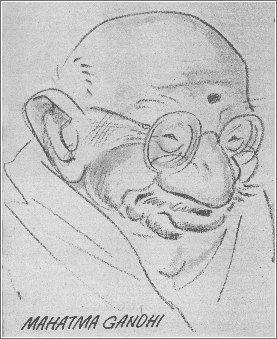Why language and terminology can feel confusing?
Why language and
terminology can feel confusing?
By Jiten Patel (2016)
Sometimes, it is hard to keep up with how
language and terms change. For example, nobody says, "wherefore art thou?"
It is accepted that we would say, "Where are you?".
These days, with the advent of instant communications, terms that once may have
taken 50-100 years to come into regular use, now do so in 2-5 years.
The following piece is, in my opinion, an
excellent short exposition on definitions in the LGBT arena. It was sourced
from: http://www.hrbullets.co.uk/blog/lgbt-lesbian-gay-and-what.html
"Benjamin Fletcher, Diversity and
Inclusion Manager at Dentsu Aegis Network,
explains six less commonly understood phrases that are used to describe the
diverse people who make up the LGBT community.
Whilst lesbian and gay are well-known terms,
the colourful array of other identities that are included in the LGBT – lesbian
gay, bisexual and transgender – family are often less visible and less well
understood. Some people may have wondered what ‘non-binary’ meant, when
20-year-old Maria Munir came out as such to Barack Obama on his recent trip to
London. Others might have wanted to ask why it is sometime LGBTI or LGBTQ
instead of LGBT. Read on to learn about these important terms - essential
knowledge when supporting LGBT inclusion at work.
Non-binary
Non-binary is a broad term which captures
all people who do not define themselves as exclusively masculine or feminine,
and thus don’t conform to binary notions of gender. Genderqueer is another term
used to articulate non-binary gender identities, which occur in several forms.
This includes people who identify as being between masculine and feminine
genders, or intergender, and people who identify as genderfluid, where gender
identity changes over time.
Intersex
Intersex is the word that is used to
describe people whose anatomical, hormonal or chromosomal makeup does not
conform to expected patterns typically used to define sex as either male or
female. For example, chromosome makeup is one-way biological sex is commonly
determined. XX is female. XY is male. Not everyone has this chromosome makeup
though. Some have XXY, known as Kinefelter syndrome. This is just one of very
many examples of how biological sex is not always neatly categorised in two
boxes. Some intersex people will also identify as non-binary.
Transgender
Transgender (‘trans’) people identify with a
gender different from that which they were assigned at birth. A trans person’s
sexuality is not linked to their gender identity, meaning a transman who was
assigned as female at birth but is now living as a man, could also be gay.
Trans people have faced enormous challenges being accepted in society and
within the LGBT community. Stonewall, the UK’s leading LGBT rights charity,
included trans-equality in its mission only in 2015; whilst transwomen have
also historically been rejected by and excluded from feminist circles and
literature.
Cisgender
Cisgender is how we describe someone who
identifies with the gender that they were assigned at birth. Most people will
identify in this way. It is an important word which reminds society not to
refer to trans people as the ‘other’.
Bisexual
Bisexual (‘bi’) people are attracted to both
men and women. Many myths perpetuate the stigma that bi people experience -
most commonly that being bisexual equals being promiscuous. As a result, bi
people are often not open about their identity and instead allow people to
assume that they are either gay/lesbian or heterosexual. Erasure of bi people –
the denial of their identity – is one of the biggest challenges the bi
community faces. This is encouraged by society as a whole and also within the
LGBT community itself; where it is often suggested that bi people are gay or
lesbian but in denial.
Queer
Queer is a word that has been reclaimed by
the LGBT community; for many as a way of asserting pride in their identity. It
is sometimes used in lieu of the acronym itself, which does not specifically
reference the array of identities that are usually included within the LGBT
family, e.g. intersex (it is alternatively sometimes written as LGBTI). It is
worth noting that queer is an in-group term, which some can find offensive. If
in doubt about whether something might be offensive, politely ask first.
Language and communication are discussed further in my book, "Demystifying
Diversity", written with my friend and professional associate, Gamiel
Yafai.




Comments
Post a Comment